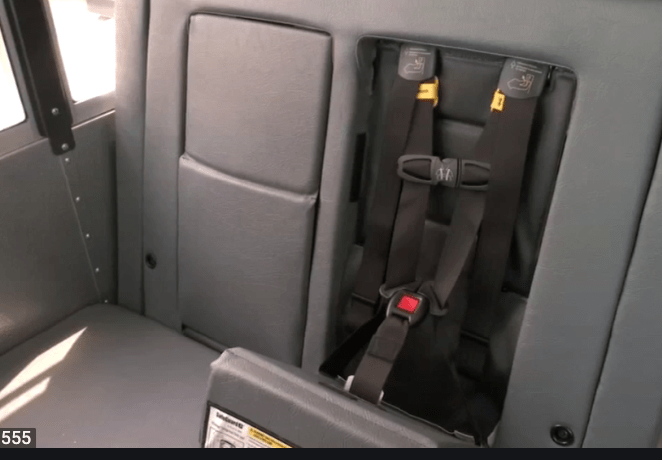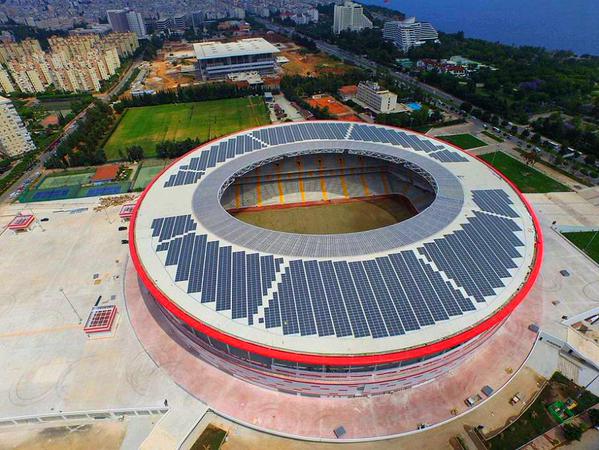The other day, the excellent, pro-“smart growth” blog Greater Greater Washington analyzed a bill that’s making its way through the Virginia House of Delegates. The bill is HB 1998 (“Establishes responsibilities for various entities for long-range transportation planning for the Virginia Department of Transportation in the Northern Virginia Transportation District”), sponsored by Del. James Lemunyon, a Republican who represents an exurban district encompassing Chantilly and much of the sprawling Dulles Airport area. I’ve mentioned the location of Lemunyon’s district because, in my opinion, the fact that it’s a sprawling, low-density area is an important factor in analyzing why Lemunyon is pushing this particular legislation.
In addition to Lemunyon, HB 1998 is being co-patroned by Del. Dave Albo (a Republican, of “abuser fees” fame, from a suburban/exurban district), Del. Barbara Comstock (a right-wing Republican, also from a suburban/exurban district); Del. Thomas “Tag” Greason (a Republican from an exurban district that includes Ashburn); Del. Glenn Oder (a Republican from Newport News); and Del. Mark Keam (the only Democratic co-patron, from the suburban/exurban Oakton/Vienna area).
Here’s what Greater Greater Washington had to say about HB 1998 (bolding added by me for emphasis):
HB1998 would make it state law to base transportation decisions on traditional traffic models, which consider only the fast movement of cars and nothing about how closely people live to their jobs, the relative value of transit versus roads, safe movement of pedestrians and cyclists, or any other factors.
This bill is, in essence, the exact opposite of the USDOT’s “livability” push. That agency has been retooling the formulas for federal transit funding to move away from only favoring projects that move the most people the longest distance.
Based on that description, HB 1998 clearly sounds unacceptable. But, before I completely condemned this legislation, I decided to ask around a bit with people whose opinion on this issue I respect.
First, I contacted Del. Mark Keam, the only Democrat who is a co-patron of this legislation. Del. Keam responded, basically that he’d respond further when he had time, but several days later and a couple more emails back and forth…nothing. Wonderful, huh?
Second, I contacted Del. Scott Surovell. See above the “fold” or just below this paragraph for video of Del. Surovell debating Del. Lemunyon last Friday on the floor of the House of Delegates.
As you can see, Del. Lemunyon really doesn’t address any of Del. Surovell’s key concerns. In particular, there is no serious answer to Del. Surovell’s question about who comes up with the list of projects, how it’s determined exactly, and why his transit-reliant district won’t get screwed over.
I also contacted Del. David Englin (D-Alexandria), a strong progressive and advocate for the environment, “smart growth,” etc. According to Del. Englin, this bill might not be as bad as Greater Greater Washington or Del. Surovell believe it is. To the contrary, Del. Englin believes that prioritizing transportation projects based “on their ability to reduce traffic congestion” is actually one of “our big arguments in favor of mass transit (‘move people, not cars’).” Del. Englin also takes heart from the fact that this legislation specifically mentions rail and bus projects, including “extension of the Metro Orange Line, bus rapid transit on Interstate Route 66, [and] the planned Metro Silver Line to Loudoun County.” Del. Englin believes that, “[i]f our assertions about the traffic reducing effects of mass transit are correct, the “top 25″ list this legislation will produce could potentially end up including many significant transit projects, making it easier for us to advocate for their funding.” Finally, Del. Englin argues that we’re never going to “get the money we need for transit if we don’t show the people who will never use it how investing in transit that others will use can be good for them too.” Interesting points.
Next, I contacted Stewart Schwartz, Executive Director of the Coalition for Smarter Growth. Schwartz points out that this legislation was “initiated by Bob Chase of the pro-highway/pro-outer beltway Northern Virginia Transportation Alliance”, that it is “an end-run around the elected officials on the Northern Virginia Transportation Authority [NVTA] and seeks to revive the outer beltway and make highway expansion a priority.” Schwartz adds that NVTA “has a transportation plan and a set of performance standards and prioritization methodology already,” and that “Bob Chase simply wasn’t happy with it.” Lemunyon’s legislation is a top priority of NVTA. In general, NVTA supports highway projects, including Maryland’s Intercounty Connector, a 4th lane on I-95, the Fairfax County Parkway, Dulles Toll Road and Dulles Greenway widening/expansion, I-66 widening, the Prince William County Parkway, and possible regional “bypass” roads. Yes, the NVTA also supported (or at least it claims it supported) the VRE and Metro to Dulles (is that a plus or a minus?), but other than that, it’s pretty much roads, roads, and more roads. Which, of course, means sprawl, sprawl, and more sprawl. In turn, that’s not surprising, given who is on NVTA’s board – mostly groups with an interest in promoting the “sprawl” model of development. Not surprisingly, the NVTA also has an antagonistic relationship with environmental and anti-“sprawl” groups, about which NVTA writes:
Organizations the Sierra Club, Smart Growthers and their followers have waged an aggressive, multi-year, well-financed, full-court press to convince elected officials that land use policy changes can largely eliminate the need for new transportation infrastructure – with the possible exception of rail extensions and buses.
Also not surprisingly, NVTA is a big backer of Bob McDonnell’s borrow-and-spend transportation “plan” (see the Coalition for Smarter Growth’s press release on this, which rips it for “Too Much Borrowing and Debt Targeted to a Project List Which Promises More Gridlock, Not Less”). That’s why, as much as I would like to share Del. Englin’s optimism on this legislation, I find myself leaning strongly in the direction of Scott Surovell and Stewart Schwartz.
What is the status of HB 1998? Unfortunately, from what I’m hearing, this legislation will almost certainly pass the House of Delegates. The question is, will it receive the tough scrutiny it deserves in the Democratic-controlled State Senate? Let’s hope so.

![Rep. Don Beyer (D-VA08) on “reports of the devastating effects Donald Trump’s Project 2025 agenda would have on [Metro]”](https://bluevirginia.us/wp-content/uploads/2024/10/trumpmetro.jpg)














